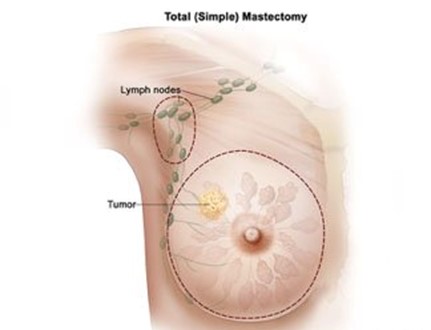A woman is admitted for repair of cystocele and rectocele. She has nine living children. In taking her health history, what would the nurse expect to find?
Sporadic vaginal bleeding accompanied by chronic pelvic pain
Menstrual irregularities and hirsutism on the chin
Heavy leukorrhea with vulvar pruritus
Stress incontinence with feeling of low abdominal pressure
The Correct Answer is D
Choice A: Sporadic vaginal bleeding accompanied by chronic pelvic pain is not the correct answer because it is not a symptom of cystocele or rectocele. This symptom may indicate other conditions such as endometriosis, fibroids, or cervical cancer.
Choice B: Menstrual irregularities and hirsutism on the chin are not the correct answers because they are not symptoms of cystocele or rectocele. These symptoms may indicate other conditions such as polycystic ovary syndrome (PCOS), thyroid disorder, or menopause.
Choice C: Heavy leukorrhea with vulvar pruritus is not the correct answer because it is not a symptom of cystocele or rectocele. This symptom may indicate other conditions such as bacterial vaginosis, yeast infection, or sexually transmitted infection (STI).
Choice D: Stress incontinence with a feeling of low abdominal pressure is the correct answer because it is a symptom of cystocele or rectocele. Stress incontinence is a condition that causes leakage of urine when there is increased pressure on the bladder, such as during coughing, sneezing, laughing, or lifting. Cystocele or rectocele can cause stress incontinence by weakening the pelvic floor muscles and connective tissue that supports the bladder and urethra. The feeling of low abdominal pressure is also a symptom of cystocele or rectocele, as it indicates that the bladder or rectum is protruding into the vagina.
Nursing Test Bank
Naxlex Comprehensive Predictor Exams
Related Questions
Correct Answer is A
Explanation
Choice A: Reports of itching, tingling and pain in genital area are the correct answer because they are common symptoms of genital herpes. Genital herpes is a sexually transmitted infection (STI) caused by the herpes simplex virus (HSV). It can cause outbreaks of painful blisters or sores on or around the genitals, anus, or mouth. The blisters or sores usually heal within a few weeks, but the virus remains in the body and can reactivate at any time. Before an outbreak, some people may experience prodromal symptoms such as itching, tingling, or pain in the affected area.
Choice B: Painful urination with a penile discharge present is not the correct answer because it is more likely a symptom of another STI, such as gonorrhea or chlamydia. Gonorrhea and chlamydia are bacterial infections that can affect the urethra, cervix, rectum, or throat. They can cause symptoms such as burning or pain during urination, abnormal discharge from the penis or vagina, or bleeding between periods.
Choice C: Wart-like flesh-colored lesions on the scrotal area are not the correct answer because they are more likely a symptom of another STI, such as human papillomavirus (HPV). HPV is a viral infection that can cause genital warts or cervical cancer. Genital warts are small, soft, flesh-colored growths that can appear on or around the genitals, anus, or mouth. They may be flat, raised, or cauliflower-shaped.
Choice D: A chancre on the penis is not the correct answer because it is more likely a symptom of another STI, such as syphilis. Syphilis is a bacterial infection that can affect various organs and systems of the body. It has four stages: primary, secondary, latent, and tertiary. In the primary stage, syphilis causes a painless sore called a chancre that can appear on or around the genitals, anus, or mouth. The chancre usually heals within a few weeks, but the infection can progress to the next stages if left untreated.
Correct Answer is A
Explanation
Choice A: Do not apply heat to the area of irradiation. This instruction is correct and should be included in the teaching. Applying heat to the area of irradiation can increase inflammation, pain, or burning sensation on the skin. The client should avoid heat sources such as hot water, heating pads, or sun exposure in the area of irradiation.
Choice B: Use an antibiotic ointment to treat skin breakdown. This instruction is not correct and should not be included in the teaching. Using an antibiotic ointment to treat skin breakdown can cause allergic reactions, infection, or interference with radiation therapy. The client should consult with her provider before using any topical products in the area of irradiation.
Choice C: Lubricate the skin with hypoallergenic lotion. This instruction is not correct and should not be included in the teaching. Lubricating the skin with hypoallergenic lotion can cause irritation, infection, or interference with radiation therapy. The client should avoid applying any lotions, creams, or oils on the area of irradiation unless prescribed by her provider.
Choice D: Do not wash the area of irradiation. This instruction is not correct and should not be included in the teaching. Washing the area of irradiation can help prevent infection, remove dead skin cells, and reduce odor. The client should wash the area of irradiation gently with mild soap and water, pat it dry, and avoid rubbing or scrubbing.

Whether you are a student looking to ace your exams or a practicing nurse seeking to enhance your expertise , our nursing education contents will empower you with the confidence and competence to make a difference in the lives of patients and become a respected leader in the healthcare field.
Visit Naxlex, invest in your future and unlock endless possibilities with our unparalleled nursing education contents today
Report Wrong Answer on the Current Question
Do you disagree with the answer? If yes, what is your expected answer? Explain.
Kindly be descriptive with the issue you are facing.
